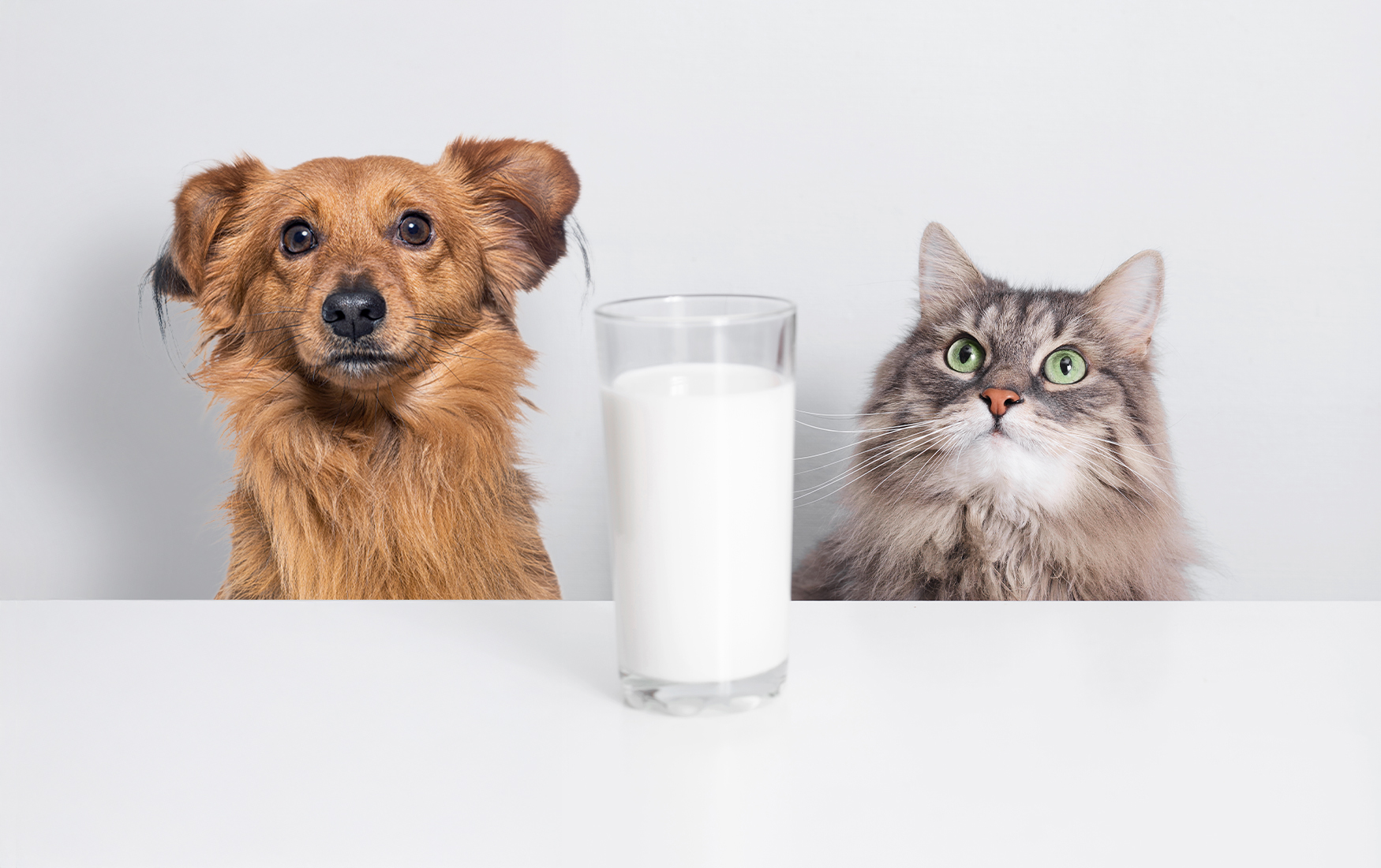
Can Adult Dogs and Cats Drink Milk?
Milk is often seen as a nutritious and wholesome drink, but when it comes to feeding it to pets, things get a bit more complicated. While many dogs and cats enjoy the taste of milk, it may not always be the best choice for their health. Understanding how milk affects pets, its potential benefits, and the risks involved can help pet owners make informed decisions.
The Good Side of Milk
Milk contains several essential nutrients that support overall health. It is a natural source of calcium and phosphorus, which help maintain strong bones and teeth. It also provides high-quality proteins that aid in muscle growth and repair. Additionally, milk contains important vitamins such as A, D, and B12, which contribute to immune function and overall well-being.
For some pets, a small amount of milk may be perfectly fine and can even serve as a source of hydration. However, the main concern is whether your pet can properly digest milk. Many adult dogs and cats struggle to break down lactose, the natural sugar found in milk, which can lead to digestive issues.
Why Some Pets Can’t Tolerate Milk?
When puppies and kittens are young, their bodies produce an enzyme called lactase, which helps them digest their mother’s milk. However, as they grow and transition to solid food, their lactase production decreases. Most adult dogs and cats lack enough lactase to break down lactose properly, leading to symptoms of lactose intolerance.
Pets that are lactose intolerant may experience digestive upset after drinking milk. Common symptoms include diarrhea, bloating, gas, and stomach discomfort. In some cases, pets may also have more frequent bowel movements because their bodies cannot fully process the lactose.
Milk Allergies in Pets
Apart from lactose intolerance, some pets may also have an allergy to milk proteins. Unlike intolerance, which affects digestion, an allergy triggers an immune system response. If a pet is allergic to milk, they may develop itchy skin, redness, ear infections, or even respiratory symptoms like sneezing and wheezing. Some pets may also experience vomiting, diarrhea, or stomach pain after consuming dairy.
When Milk Should Be Avoided?
Aside from pets with lactose intolerance and milk allergies, milk can do more harm than good for those with certain health conditions. Dogs or cats with chronic kidney disease should avoid milk because its high phosphorus content can put extra strain on their kidneys. Additionally, milk contains natural sugars and fats that can contribute to weight gain, making it unsuitable for overweight pets or those prone to pancreatitis. Some studies also suggest that too much milk can cause metabolic imbalances, leading to changes in urine pH and overall health complications.
Are There Safer Alternatives?
For pets that love milk but struggle with digestion, lactose-free milk can be a better option. This type of milk is treated with lactase, an enzyme that breaks down lactose into simpler sugars, making it easier to digest. Another alternative is fermented dairy products like kefir, which naturally have lower lactose levels and contain probiotics that support gut health.
Goat’s milk is also considered easier to digest than regular cow’s milk. Most commercial cow’s milk contains a protein called A1 beta-casein, which some studies suggest may contribute to digestive discomfort. Goat’s milk, on the other hand, contains A2 beta-casein, which is believed to be gentler on the stomach. While research is still ongoing, some pets with sensitive digestion may tolerate A2 milk better than traditional cow’s milk.
Final Thoughts: Should You Give Your Pet Milk?
Milk is not an essential part of an adult pet’s diet and considering that the majority of adult pets struggle to digest dairy, it is generally safer to avoid it. However, if owners still wish to offer milk as an occasional treat, it should be given in small quantities (e.g. just one teaspoon per kg body weight) and watch for any signs of digestive discomfort or allergic reactions.
If your pet experiences diarrhea, bloating, or itching after drinking milk, it’s a clear sign that dairy isn’t a good choice for them. In such cases, avoiding milk altogether is the safest option. However, if your pet enjoys dairy and tolerates it well, lactose-free milk, kefir, or goat’s milk may be better alternatives.
As always, a balanced and species-appropriate diet is the key to keeping your pet happy and healthy. When in doubt, consult with a pet nutrition expert to determine the best diet for your pets.
